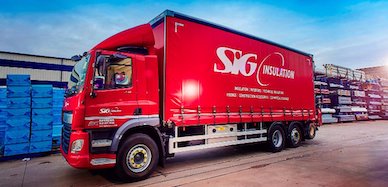Shares of SIG plc, the Sheffield-based international building materials supplier, fell about 13% after it said it expects “weak and uncertain demand conditions throughout the rest of the year” and expects to deliver full year underlying operating profit towards the lower end of market expectations.
In a trading update for the six months to June 30, 2023, SIG said group like-for-like revenue was flat at £1.424 billion.
“Market conditions remained challenging and variable, with notably softer demand in May and June, particularly in Germany and France …” said SIG.
“Underlying operating profit expected to be c.£33m, with early impact of productivity initiatives partially offsetting demand weakness and inflationary impact on operating costs …”
Company collated analyst expectations for the full year are underlying operating profit (EBIT) of £74.2 million, within a range of £65.3 million to £84 million.
SIG’s biggest shareholder is US buyout firm Clayton, Dubilier & Rice with a 29% stake.
In its outlook, SIG said: “We expect weak and uncertain demand conditions throughout the rest of the year, along with a continued, but further moderating, revenue tailwind from input price inflation.
“Whilst trading in recent weeks leads us to be more cautious as to the timing of any broad-based improvement in demand conditions, the second half will benefit from ongoing productivity initiatives as well as an expected profit on one specific property move.
“Consequently, the board continues to expect the group to deliver full year underlying operating profit within the current range of market expectations, but towards the lower end of that range.
“Notwithstanding short-term market weakness, we continue to progress the strategic and operational initiatives which underpin our ambition for the group.
“As a European market leader in the supply of specialist insulation, and with 80% of the group’s sales covering insulation and the wider building envelope, we are well-positioned to benefit from long-term structural growth drivers, notably sustainable construction and decarbonisation of buildings.
“We also remain confident in our ability to further improve our market positions, and to continue to improve our profitability when market conditions recover.”
